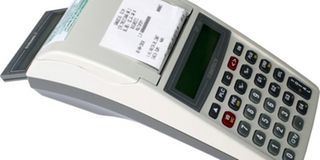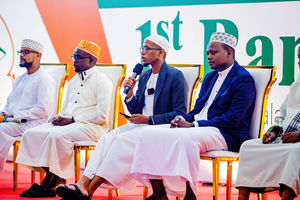Arusha seeks revenue boost through EFDs, new by-laws

What you need to know:
Report says the authorities have yet to tap into the city’s huge internal revenue potential, including levies and fees charged on numerous businesses and services
Arusha. New by-laws and enforced use of electronic fiscal devices (EFDs) are among the new strategies being rolled out to improve revenue collection in Arusha City.
The local authority here, which doubles as the country’s tourism hub, managed only a marginal rise in revenues collected in the last three years.
A report released here on Monday said the authorities were yet to tap into the city’s huge internal revenue potentials such as levies and fees charged on numerous businesses and services.
“From now on CCTV cameras will be installed on all weighing scales operated by the city council,” said district commissioner Gabriel Daqarro when presenting the report.
He added that efforts would be made to use the databases of large tax payers and big businesses to ensure all taxes, levies and other charges were paid in full.
According to the DC, the city council was projected to collect a total of Sh15.6 billion from various internal revenue sources during the 2018/2019 financial year. By the end of November, last year, some Sh7.6 billion had been collected, approximately 49 per cent of the projected tax revenues for the city during the current fiscal year.
During 2017/2018 some Sh13.5 billion was generated from various tax sources by the city council, slightly above the Sh13.2 billion projected for that financial year.
The 2017/2018 period was the second fiscal year running in which the city authorities surpassed the revenue projections.
Some Sh13.8 billion was generated during the 2016/2017 period against a target of Sh12.2 billion. During the 2015/2016 period some Sh13.6 billion was collected against projections of Sh14.5 billion.
Mr Daqarro attributed the slight fall in revenues in the last few years against the projections to some sources shifting from the city to the central government.
Internal revenue projections for the coming financial year (2019/2020) indicate that the authorities are to collect Sh18.9 billion, the DC told journalists.
Arusha city, the magnet of the country’s multi-million dollar tourism sector, generates most of its revenues from the hospitality industry, the service sector, real estate and trading.
During the last financial year, some Sh1.3 billion was extended as loans to income generation groups run by the youth, women and people with disabilities, down from Sh1.9 billion in 2016/2017.
Between July and October, last year, some Sh 740 million had been extended to 135 groups for the same purpose.




